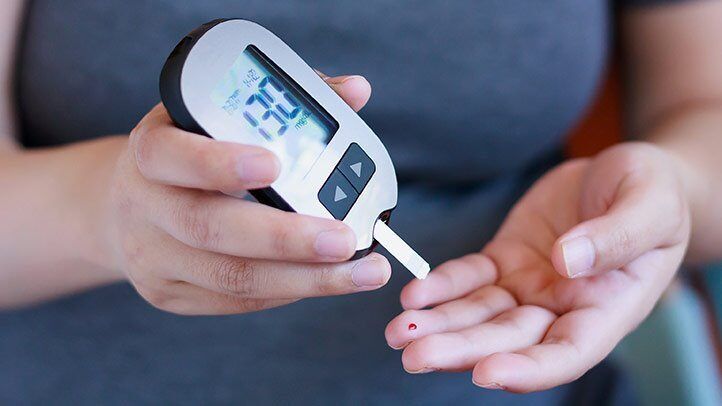Diabetic macular edema (DME) is a leading cause of vision loss in people with diabetes, and if you’ve recently been diagnosed with this condition, it’s important to take quick action to prevent any further loss of sight.
Caused by diabetic retinopathy — a complication of diabetes in which damaged small blood vessels in the eye leak fluid into the retina and trigger swelling of the macula — DME affects an estimated 750,000 people in the United States, according to the National Eye Institute (NEI).
“[The macula] is the center of the retina, where you have the best vision,” says Daniel S. Casper, MD, PhD, an ophthalmologist with Columbia University Irving Medical Center in New York City. It’s the part of the eye that helps you see straight ahead. After developing DME, people may have trouble reading books (the letters can appear twisted or misshapen) or seeing the faces of friends and family.
Moreover, a loss of vision can have a serious impact on your quality of life. The Centers for Disease Control and Prevention (CDC) defines vision loss as a cause of disability and a public health problem in the United States.
People who are visually impaired are more likely to have depression and experience a fall than those who don’t have low vision, the organization says. Plus, a loss in vision can limit a person’s ability to drive, read, manage their finances, and travel.
If you have DME, it’s important not to delay treatment. By taking action right away, it’s possible to prevent further vision loss. Follow this sight-saving advice.
1.Lower Your Blood Sugar Levels

If you have DME, having high blood sugar levels can increase your risk of blindness, according to the NEI. Dr. Casper tells people to try to lower their A1C number — a measurement of your average blood sugar levels over about three months — to between six and seven.
2.Schedule Regular Eye Appointments

People with diabetes are often advised to see an eye doctor annually. After a DME diagnosis, you may need to come in more frequently, depending on the progression of the disease and the status of your A1C.
If your A1C is too high and you have other lifestyle habits that speed up the disease (smoking, for example), then you may need to schedule a checkup once every few months, says Casper.
3.Exercise Regularly

Staying active can help improve your all-important A1C level, and the best way to lower your blood sugar is by doing a combination of aerobic and resistance exercise, according to an analysis published in July 2019 in the journal Diabetes Care. Shoot for at least three days of moderate to vigorous physical activity and two days of weight training per week.
4.Eat a Healthy Diet

When it comes to maintaining or lowering your blood sugar levels, it’s hard to overstate the importance of a healthy diet. The American Diabetes Association recommends a diet full of vegetables, seeds, and nuts.
5.Stop Smoking

It’s unclear whether smoking is linked to DME, but the CDC points out that smokers who have diabetes are more likely than their nonsmoking counterparts to have heart disease, kidney disease, retinopathy, and peripheral neuropathy. Plus, a study published in February 2019 in BMJ that followed subjects who participated in the Singapore Indian Eye Study found that smoking increased the risk for DME in people with diabetes. For help quitting, call 1-800-QUIT-NOW.
6.Control Your Cholesterol and Blood Pressure Levels

According to a study published in October 2019 in the International Journal of Ophthalmology, high blood pressure and cholesterol levels may worsen eye health in people with DME. The American Heart Association defines healthy blood pressure as less than 120/80 mm Hg. Talk to your doctor about your target cholesterol levels.
7.Use Low Vision Aids

If you have DME, using low vision aids — magnifying devices, special eyeglasses, telescopes — can help maximize your vision, according to the CDC. And low vision devices don’t just improve your quality of life; they can also keep you safe and help you maintain your independence.








